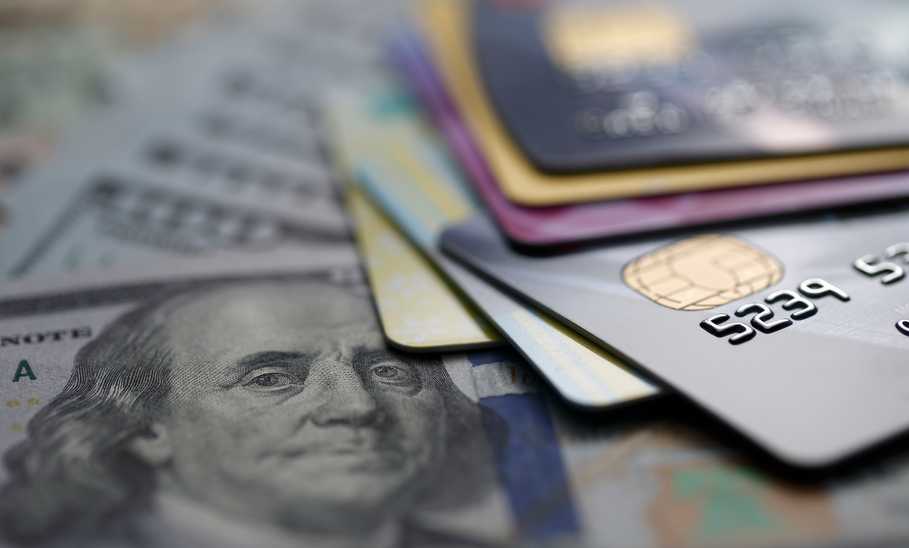How Credit Card Companies Make Money

Our evaluations and opinions are not influenced by our advertising relationships, but we may earn a commission from our partners’ links. This content is created by TIME Stamped, under TIME’s direction and produced in accordance with TIME’s editorial guidelines and overseen by TIME’s editorial staff. Learn more about it.
Credit card companies make money off every transaction, and in more ways than one. For example, they earn income from consumers who pay to use their products, either through credit card interest or various fees. In the meantime, merchants and retailers who choose to accept credit cards must pay for the privilege.
Read on to find out about the three main income streams credit card companies rely on, the different types of credit card companies, and steps you can take to avoid handing over too much of your money to these companies each year.
First, you should know there are two main types of credit card companies: credit card issuers and credit card networks. Some major players overlap both roles:
Credit card issuers are the banks and credit unions that issue credit cards. Issuers lend the money cardholders spend when they use their cards and levy credit card fees. Credit card issuers charge interest when you carry a balance, and determine the terms and conditions of your credit card offer. Examples of credit card issuers include American Express, Chase, Citi, Capital One, Discover, and Wells Fargo.
Credit card networks are the companies that handle and oversee transactions between credit card issuers and merchants. Essentially, they do this by creating and managing virtual networks that send and receive payments. Credit card networks charge merchants for this service through something called an "interchange fee." Card networks also make sure charges are attributed to the right consumer so that the card issuer can send them a bill. Examples of credit card networks include American Express, Discover, Mastercard, and Visa.
As you can see from the above, American Express and Discover are both credit card issuers and credit card networks. This means they issue their own credit cards and also facilitate payments between cards and merchants.
Credit card companies make healthy profits, mostly because many consumers take their credit card use to an extreme. The Consumer Financial Protection Bureau (CFPB) notes that more than 175 million Americans had at least one credit card at last count, and that total consumer credit card debt could soon reach $1 trillion.
How do credit card companies profit as a result? Consider the following three main ways:
Credit card issuers make money from the interest they charge consumers when they carry a balance. The amount of interest they charge individual consumers depends on their creditworthiness, but interest rates also ebb and flow over time based on market conditions.
As an example, according to Federal Reserve data the average interest rate on credit card accounts assessed interest came in at 22.16% as of May of 2023 (the most recent figures), compared to 16.28% in 2020.
Credit card issuers also charge a range of fees, most of which you can avoid through responsible use of credit and picking the right card:
Credit card interchange fees are fees charged by a payment network (e.g. Mastercard or Visa) to a merchant when they accept credit cards as payment. These fees are typically charged as a percentage of each transaction amount (usually 1% to 3%), and for every purchase facilitated across a payment network. That said, the percentage of interchange fees can also vary based on the volume of transactions as well as the quality.
Here's how interchange fees work: Imagine you head to the grocery store and use a credit card to pay your $215 bill at checkout. In that instance, the credit card payment network that facilitates the transaction charges the grocery store an interchange fee as a percentage of your grocery bill (potentially $2.15 to $6.45).
Now that you know how credit card companies make money, you can use this information to your advantage. For the most part, this means never paying credit card fees you have the power to avoid.
Maximize the benefits of credit cards while keeping cost down with the following tips:
According to the Federal Reserve, credit card interest is the main funding source for credit card issuers like banks and credit unions. This makes sense when you consider the sky-high rates many credit cards charge, and that many consumers carry credit card balances in perpetuity.
Avoid costly credit card interest by paying your credit card statement balance by your payment due date every billing cycle. This step is made easier when you use credit cards only for purchases you can afford to pay off right away, and when you make it a priority to do so.
You don't have to pay credit card annual fees if you don't want to, mostly because there are so many great credit card offers that don't require them. For example, you can consider the card_name or the card_name if you want to earn rewards without paying an annual fee.
Avoid using a credit card for a cash advance and you'll never pay cash advance fees. That's probably a good move anyway since these fees are high and because credit card interest is charged on cash advance amounts from day one.
You can also avoid over-the-limit fees by tracking your spending and monitoring your credit card balance over time. Skip foreign transaction fees by picking a credit card that doesn't charge them. Balance transfer fees can be worth paying if you need to consolidate high interest debt. Otherwise, these fees can also be avoided.
Credit card companies generate huge revenues year after year thanks in large part to consumers paying fees that could be avoided. By paying your balance in full each month, avoiding miscellaneous fees, and using credit responsibly otherwise, you can benefit from the convenience of credit as well as your card's features and rewards without paying for the privilege.
And remember that credit card networks are charging interchange fees for every purchase you make. Plus, other people are paying interest and fees on their cards whether you do or not.
While credit card issuers don't make money through credit card interest if you pay your balance in full each month, they make money through credit card fees and miscellaneous charges. Credit card networks also charge merchants interchange fees for every purchase you make.
Credit card companies make money on purchases in several different ways. These include the interest they earn if you carry a balance and the interchange fees credit card networks charge.
Visa is not losing money. It is actually a highly profitable company. According to internal financial data from the company, Visa earned $29.3 billion in net revenue in 2022.
The information presented here is created by TIME Stamped and overseen by TIME editorial staff. To learn more, see our About Us page.



